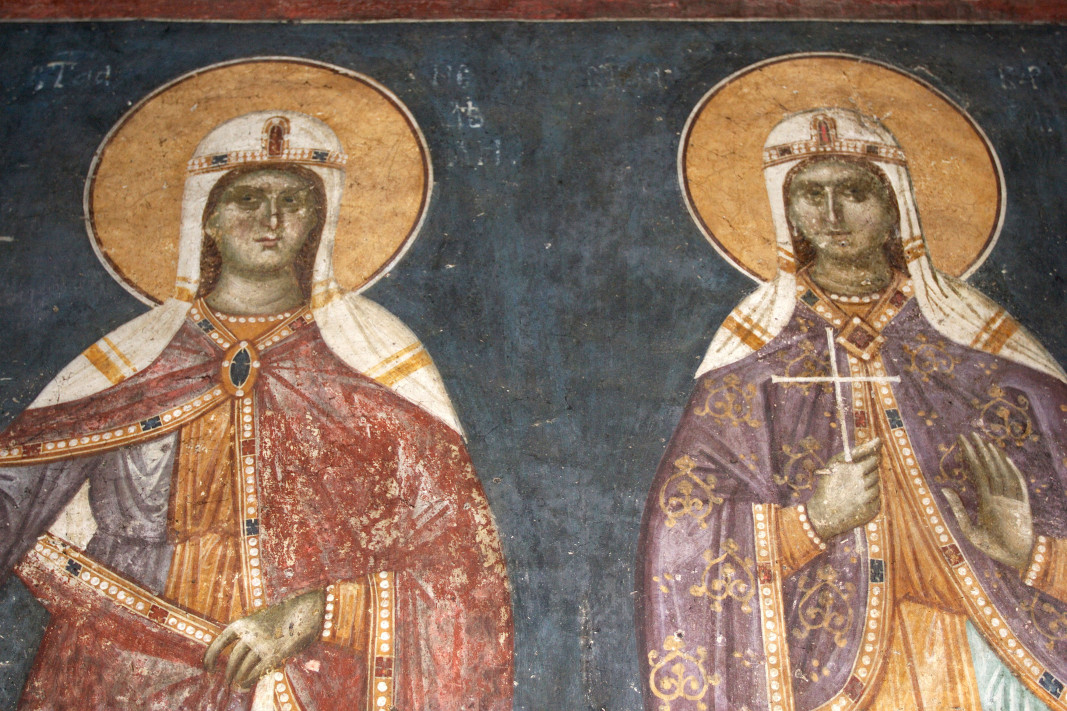A multitude of beliefs and rituals in Bulgarian folklore tradition, are connected with the day of St. Varvara, Barbara, 4 December, marking the start of a string of feast days.
According to legend, St. Varvara was born in what are today the Bulgarian lands, in Eleshnitsa village, at the time called Illiopolis. She is considered to be the saint protecting children from disease, most often measles. In Western Bulgaria this day is dubbed Women’s Christmas, when girls, clad in their best clothes, with bags slung over their shoulder, would do the rounds of the houses and, just like the koledari, the male carol singers, they would sing songs of health and plenty.
On the following day, 5 December, the church honours St Sava, called the Enlightener. Born to noble parents in Cappadocia in the 4th century, at the age of 18 Sava went to live in a monastery where he was educated and ordained as a monk. In search of solitude and consecration, he went into the desert of Jordan and started living in a cave which had been revealed to him in a dream. When his parents died, Sava received a big inheritance which he used to build monasteries and hospitals, and two inns.
In Bulgarian folklore tradition, Saint Sava is often depicted as female, and the rituals on this day are usually for girls and are connected with their getting married and begetting a child.

The high point in this string of New Year festivities comes on 6 December, Nikulden, the day of St. Nicholas of Myra, patron saint of sailors, fishermen, bankers and merchants.
In folklore belief Varvara is Sava and Nicholas’ sister, that is why the folklore feasts always combine pagan with Christian elements. Find out how this combination works from Varvara boils it, Sava roasts it, Nikola welcomes guests
Find out more about these traditions, and what we can put on the table on these festive days from Radio Bulgaria’s Folk Studio: From Varvara to Nikulden – customs, rites and ritual food.
Editing by Elena Karkalanova
Photos: archiveBulgarians are among the few peoples in the world with a holiday dedicated to spirituality—the National Awakeners' Day. We celebrate it every year on November 1 to honor those who awakened the nation to freedom, knowledge and dignity during the dark..
St. Demetrius Day – October 26, is celebrated throughout Bulgaria, and his relics, kept in Thessaloniki, are a constant object of veneration by Bulgarians who often travel to Northern Greece. In the folk calendar, St...
The Anthem of Independence was performed for the first time on September 22, 1908, in the Black Sea city of Burgas. The author of the melody and lyrics—military bandmaster Georgi Shagunov—noted on the title page of the score that the anthem was..

+359 2 9336 661
